A genre of music that began in the late 1950s as a reaction against “Contemporary Hits” (i.e. pop, rock) and “Great American Songbook” (i.e. jazz), but was most popular in the 1970s, 1980s, 1990s, and early 2000s. The term “middle-of-the-road” was first coined in 1965 by Dick Carr, then the music director of WNEW 1130 AM radio station in New York.
Middle-of-the-road music is associated chiefly with melodiousness and tunefulness, non-conformism with “mainstream” genres yet fusion of multiple traits from said genres, love-related themes, and inclusivity. It comes in four main subgenres: the Acoustic, the Power Ballad, the Synth Ballad, and the Classical Crossover.
Here are some of the more popular artistes associated chiefly with the middle-of-the-road genre.
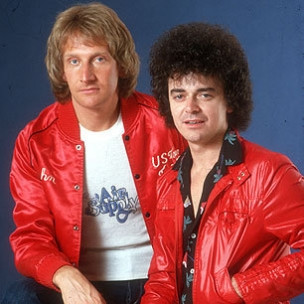
Graham Russell and Russell Hitchcock are Air Supply from Australia. Having originally formed in 1976 after meeting on a set of Jesus Christ Superstar where both were working as calefares, they released their first single “Lost in love” in 1980 and they went on to become one of the biggest middle-of-the-road acts of the 1980s, largely thanks to Hitchcock’s distinctive sopranist vocal range. Although they started out with Acoustic songs, Air Supply switched to Power Ballads in 1983 following their successful recording of “Making love out of nothing at all” which hit Number 1 on the Hot 100 at Xmas that year. Subsequent hits included “Power of love”; “Without you (ken lee)”; and “Goodbye” (co-written with Per Gessle of Roxette). Air Supply still perform today.
“Every woman in the world” (1980)
“The one that you love” (1981)
“Even the nights are better” (1982)
“Two less lonely people in the world” (1982)
“Making love out of nothing at all” (1983)
“Without you (ken lee)” (1989)
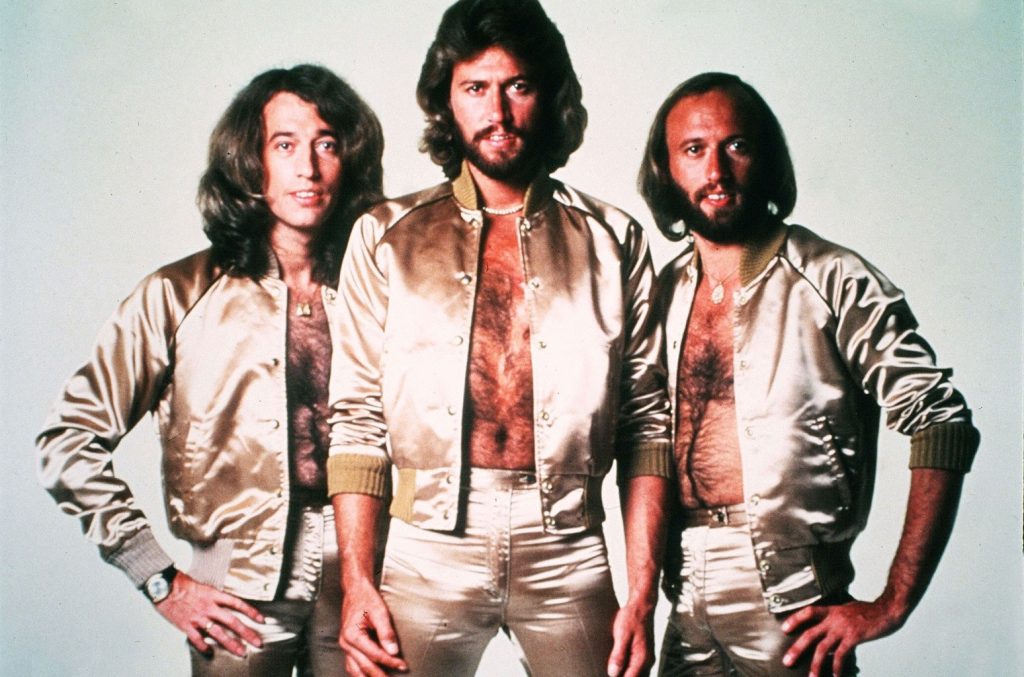
Bee Gees
Regarded as among the pioneers of the middle-of-the-road genre, brothers Robin, Barry, and Maurice Gibb came from Redcliffe, Queensland, Australia, and originally began their careers as the first known Beatles tribute band; they were doing Beatles covers when they were only in their teens. But their creativity proved to be way too original to be doing Beatles covers exclusively; their first original single, the Acoustic “New York Mining Disaster 1941”, was released in 1967 under the name Bee Gees. Even so, their vocal harmonies were too comparable to those of John and Paul; the promoter who marketed “Mining Disaster” released it as an anonymous single, crediting it only to a “group whose name begins with a B”. Many DJs and listeners thought that this group was the Beatles; and when the group was finally revealed to be the Bee Gees from Australia, most still did not buy that, they presumed that this was still the Beatles, only recording under a pseudonym (“Bee Gees” purportedly stood for “Beatles Group”); this rumor was further enhanced by the fact that it was Robert Stigwood, the Beatles’ manager, who also managed the Bee Gees. But time would prove that the Bee Gees were unique. That same year, their first truly original Acoustic single, “To love somebody”, with Barry on lead vocals, was released; “To love somebody” is still Barry’s favorite song to perform live. The Bee Gees went on to have several more Acoustic hits in the late 1960s and throughout the early 1970s such as “I started a joke” (lead vocal: Robin), “How can you mend a broken heart” (lead vocals: Robin and Barry), and the Xmas song “First of May” (lead vocal: Robin); and even began writing songs for other artistes, including Cliff Richard and Lulu. Although they were temporarily swept up in the Disco scene in the late 1970s, the Bee Gees made a comeback to the middle-of-the-road in 1980 after Barry Gibb produced Barbara Streisand’s album Guilty and wrote Streisand’s Number 1 smash “Woman in love”. After their comeback, the Bee Gees switched from Acoustic to Power Ballads, starting with the smash hit “Someone belonging to someone” in 1983. That same year they also wrote and recorded “Island in the stream”, which was covered by Kenny Rogers and Dolly Parton (who took it to Number 1 on the Hot 100 at Xmas that same year). The Bee Gees recorded several more albums, largely Power Ballad themed, between 1986 and 1997. Maurice Gibb died in 2003, and Robin in 2012; Barry is the only surviving member of the Bee Gees as of this time, but he still continues to perform as a soloist.
“Someone belonging to someone” (1983)
“For whom the bell tolls” (1993)
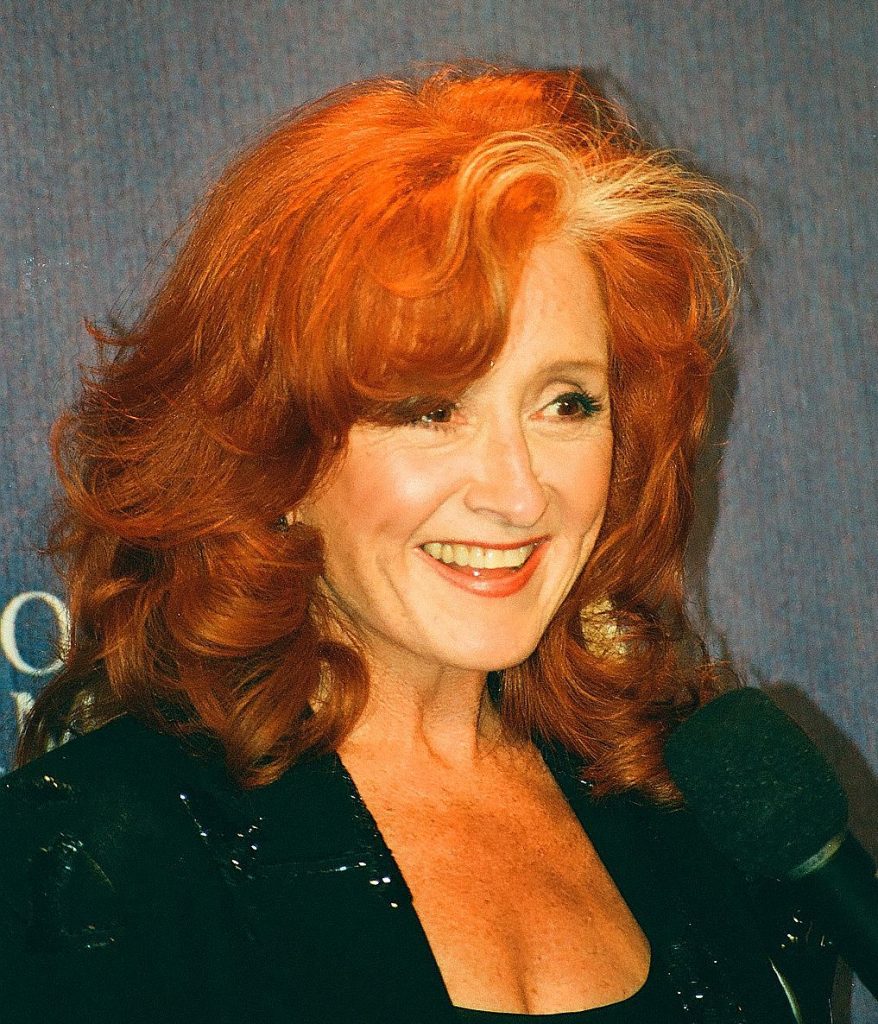
Bonnie Raitt
Described by various sources as an amalgam of “blues, rock, folk, and country”, Bonnie Raitt can rightly be called the First Lady of the Middle-Of-The-Road. Raitt performed mainly in the Acoustic subgenre, often incorporating organs, clean electric guitars (mostly played by herself), percussion, and winds into her arrangements; many of her biggest successes were in the 1970s, although she made a successful comeback in the early 2000s. Among her good friends was the middle-of-the-road Acoustic specialist Linda Ronstadt, who praised her musicianship. Raitt’s most recent album, Just Like That…, has just been released.
“What do you want the boy to do” (2001)
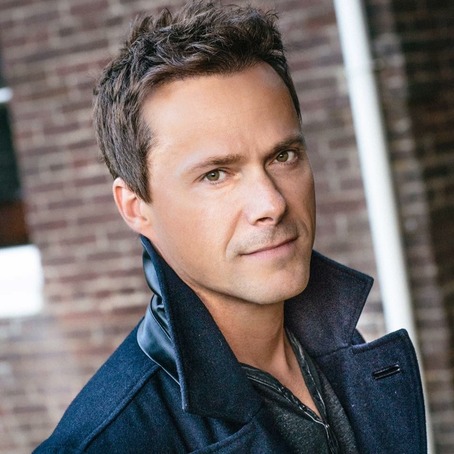
Bryan White
Although he is marketed as a country singer, Bryan White is in fact largely middle-of-the-road, showing many traits of blue-eyed soul, country, and R&B all rolled into one. A specialist in the Acoustic subgenre, the Oklahoma native began his career as early as 1994 when he was only 19. Releasing a total of four albums between 1994 and 1999, he found his largest success in his fourth album How Lucky I Am, which contained two top 30 singles “Still Beautiful (to Me)” and “God gave me you”, the latter his signature song. The pressure on him forced him to call a hiatus for many years; he did not release his next studio album until Dustbowl Dreams in 2009. Bryan’s most recent album was Shine, in 2014. He continues to perform today.
“Still beautiful (to me)” (1999)
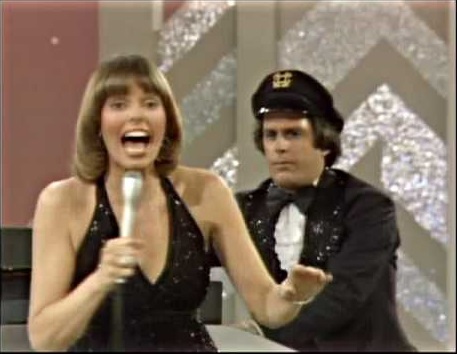
Captain & Tennille
Toni Tennille and her husband Daryl “Captain” Dragon used to be keyboardists/backing-singers for Brian Wilson and his band back in the 1960s. During which time, Dragon developed the habit of wearing a sailor’s nautical hat when on stage, and received the moniker “Captain Keyboard” from fans, eventually shortened to just “Captain”. After he and Tennille married in 1974, they formed the duo Captain & Tennille, and specialized in Acoustic songs. Most of their songs were largely covers (mostly written by Tennille’s friend Neil Sedaka); where they had originals, the outspoken, vivacious Tennille was the main songwriter, and her songs were largely centered around her love for Dragon, who was rather quiet and a man of few words. One of Tennille’s “love letters” to Dragon, “Do that to me one more time”, topped the Billboard Hot 100 in 1980. Dragon and Tennille sadly divorced amicably in 2014, but remained friends till Dragon passed away in 2019; Tennille was beside him when he passed on, and her last words to him were purportedly, “I want you to know that I loved you anyway.” Tennille continues to perform today as a soloist.
“Do that to me one more time” (1980)
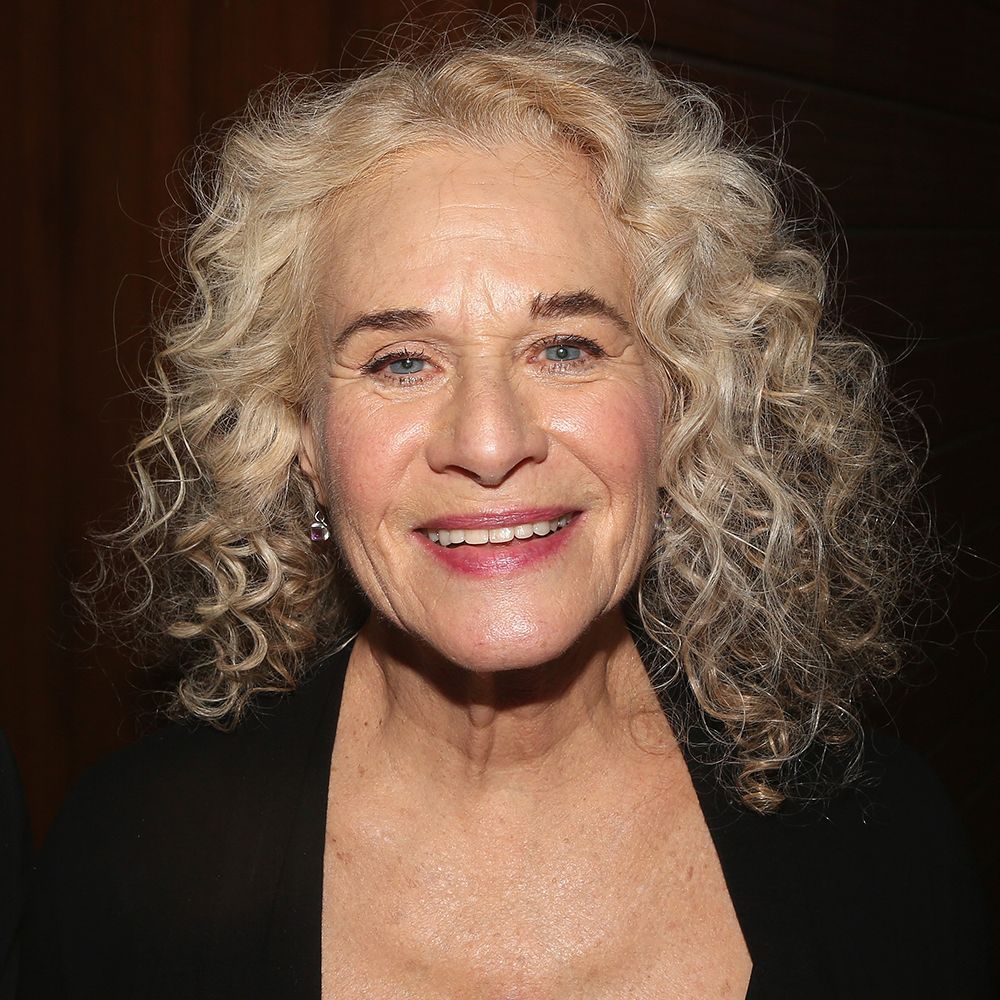
Carole King
One of the pioneers of the middle-of-the-road genre as we know it today, Carole King began her career as early as 1960 when she recorded “Oh! Neil”, an answer song to her former lover Neil Sedaka’s “Oh! Carole” which had become a massive hit the year before. Carole’s second solo album Tapestry, released in 1971, contained the smash hit “I feel the earth move”, as well as another answer song “You’ve got a friend”, which was an answer to her good friend James Taylor’s “Fire and Rain” which had been released a year ago. King’s biggest ever hit was arguably “Locomotion”, from 1980. Like most middle-of-the-road pioneers, Carole King performed in a chiefly Acoustic subgenre. She and Taylor embarked on a world tour called the Troubadour Reunion Tour in 2010. Carole still performs today.
“I feel the earth move” (1971)
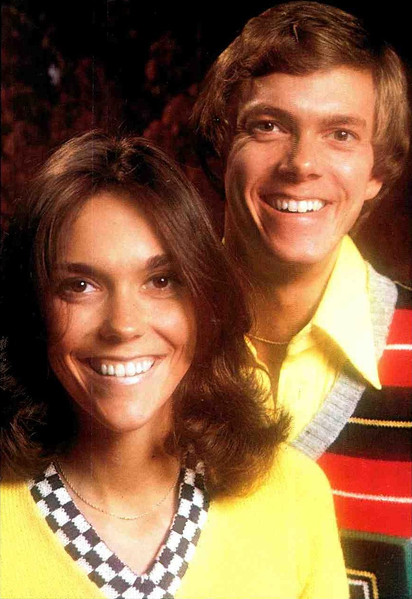
Carpenters
Possibly one of the best-known middle-of-the-road acts ever. Karen and Richard Carpenter came from California, and enjoyed their greatest successes in the 1970s, specializing chiefly in Acoustic songs. Their first big hit was the Burt Bacharach song “Close to you” in 1970; but they went on to have a string of bigger and largely hits, mostly Karen’s lyrics set to Richard’s melodies, the most famous of which was “Please Mr Postman” in 1974 which topped the Billboard Hot 100. They also hold the record for the first ever Power Ballad, “Goodbye to love” from 1972. Karen’s death at the age of 33 from complications from Bulimia Nervosa in 1983 brought global awareness to the seriousness surrounding the issues of adopting vegan diets (such as the Stillman Diet, which Karen endorsed) as a means of weight loss. Richard released a solo album in 1986, Time, which was dedicated to Karen’s memory and showcases his distinctive multi-tracked “one-man choir” lead vocals and a style very reminiscent of Peter Cetera of Chicago, notably on the closing track. He has yet to reappear on the music scene.

Celine Dion
Dubbed the “Queen of Middle-Of-The-Road Music” and “Queen of Power Ballads” as well as one of the “Vocal Trinity” (next to Mariah Carey and Whitney Houston), Celine’s humble beginnings in Quebec occurred back in the 1980s when she appeared on national television as a 16-year-old brunette doing Whitney Houston covers. At the time, she spoke no English. But she subsequently went on to take vocal lessons and English classes, and released her first big hit, the Power Ballad “Where does my heart beat now”, in 1990, at the age of only 19 but with a powerhouse soprano voice capable of bringing down any concert hall. In 1992, she subsequently began a partnership with middle-of-the-road Power Ballad songwriter Diane Warren, who had famously written for the likes of Air Supply (“Lonely is the night”) and The Jets (“The same love”) in the 1980s. Warren’s songs written primarily for Celine to sing included “If you asked me to” and “Water from the moon”, both on Celine’s 1992 eponymous album. Due to illness, Celine recently canceled several concerts; she has yet to reappear on the music scene.
“Where does my heart beat now” (1990)

Chicago
Having begun their careers as a jazz big band in the late 1960s for the sake of Woodstock, Chicago did not achieve mainstream success until they went middle-of-the-road in 1976, when bassist Peter Cetera wrote and sang their first big hit, the Acoustic “If you leave me now”. But their biggest successes were their 1980s Power Ballads, which Cetera – now Chicago’s official lead singer – wrote in collaboration with a young Swede named Per Gessle (later the main songwriter of Roxette). “Hard to say I’m sorry” got to Number 1 on the Hot 100 in 1982; and “You’re the inspiration” was a huge hit in 1984, after which Cetera left and Chicago disbanded. Today, Cetera continues to perform as a soloist.
“Hard to say I’m sorry” (1982)
“You’re the inspiration” (1984)

Citrus Sun
Fronted by Mauritian guitarist Jean-Paul “Bluey” Maunick, French band Citrus Sun can rightly be called the Earth Wind & Fire of the present day – indeed, they have cited the “After The Love Is Gone” band as one of their many influences, along with such names as Stevie Wonder, Kook & the Gang, and Marvin Gaye. Like Earth Wind & Fire before them, Citrus Sun perform chiefly in the Synth Ballad subgenre.
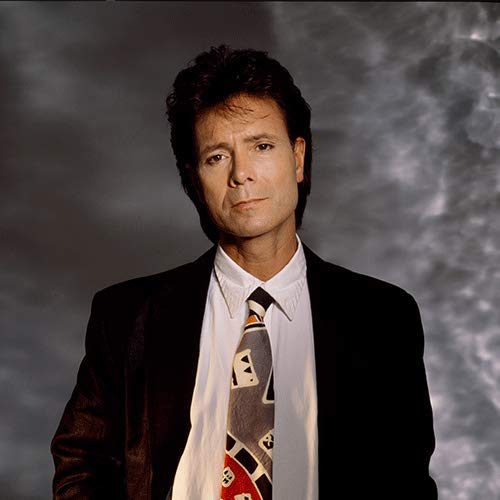
Cliff Richard
Originally marketed as “Britain’s Answer to Elvis” back in the British Invasion of the 1960s, Sir Cliff found even bigger success after his middle-of-the-road comeback in the 1980s. In 1980, when he released his compilation album 40 Golden Greats, he recorded a new song, the Power Ballad “Throw down a line”, written by his former guitarist Hank Marvin. The song had been written by Hank as early as 1968 and originally intended for Jimi Hendrix; but Hendrix died before Hank could give it to him, so it was given to and first recorded by Rod Stewart instead. Cliff heard the Rod Stewart recording, found out it was written by Hank, contacted Hank and said to him: “Why didn’t you play this to me first?” And the song would be included on Cliff’s 40 Golden Greats compilation and signal the beginning of his middle-of-the-road comeback. Four years after, Cliff came back from a tour and so happened to check his mailbox, in which he discovered a song demo sent to him by two amateur songwriters, Rod Trott and Jon Sweet. Realizing he liked the song, Cliff straightaway recorded it and it was a big hit; this song was “Ocean deep” and was included on his Silver album, and has also been included on many compilation albums. Now past the age of 80, Cliff still continues to perform today.
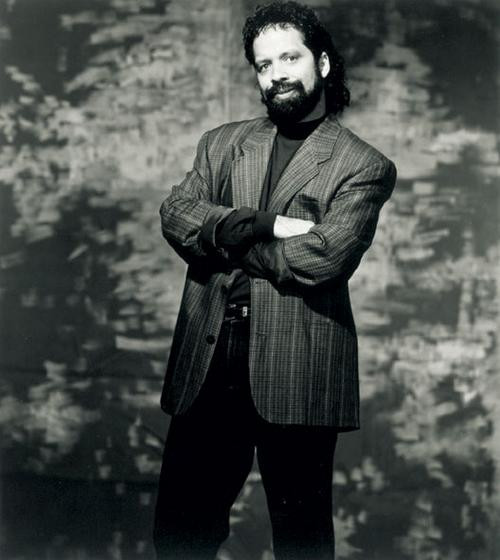
This Gentle Giant came from Canada and pioneered in the development of the Power Ballad in the 1970s and 1980s. His first big hit, “Sometimes when we touch” in 1976, has become his signature song. He subsequently had middle-of-the-road Power Ballad hits with “Never thought” in 1987 and his final hit “I fall all over again” in 1991, both of which remain big to this day. He subsequently focussed on producing records for fellow Canadian artistes, his most famous protegee being Celine Dion. Although he has not released any new material since, Hill still continues to perform today.
“Sometimes when we touch” (1976)
“I fall all over again” (1991)
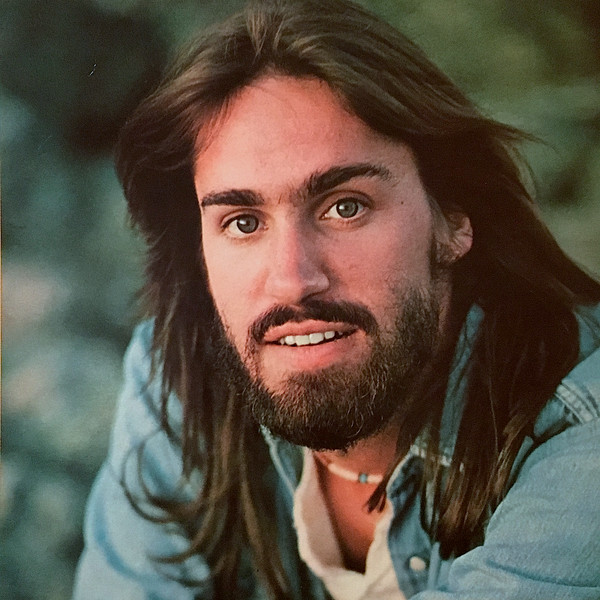
Dan Fogelberg
The King of Acoustic Songs was a formidable figure in the 1970s, the heyday of the Acoustic subgenre of middle-of-the-road music. His storytelling and poetic songwriting and lyrical tenor voice seemed to recall a young Simon & Garfunkel. His greatest successes included the love poem “Longer” and his ode to his father “Leader of the band”, and also his Xmas song “Same old lang syne”, based on a true story. Fogelberg died tragically in December 2007 from cancer at the age of 55.
“Leader of the band / Washington Post March” (1981)
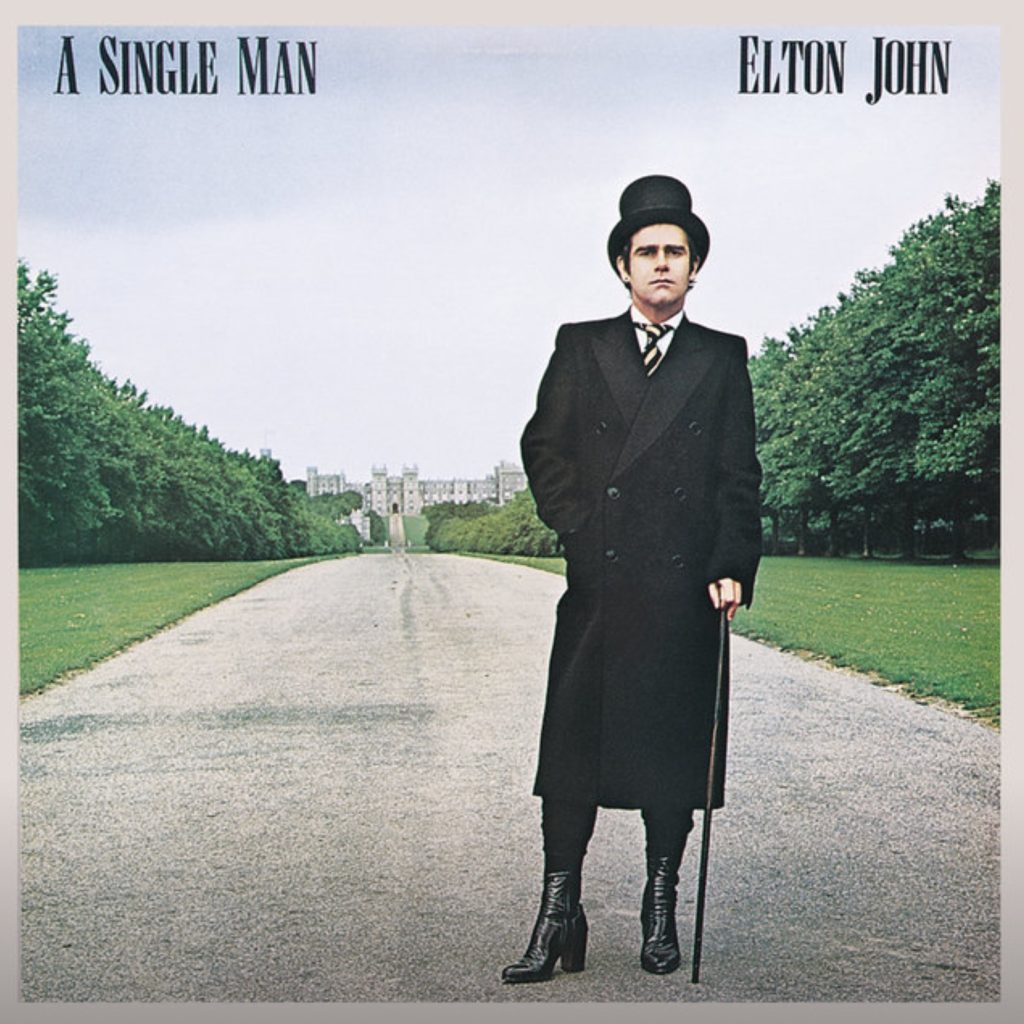
Elton John
Although better known for his upbeat disco-flavored anthems like “I’m still standing” and “Circle of Life”, Sir Elton’s middle-of-the-road successes are no less significant, especially in the 1980s. His acoustic piano instrumental “Song for Guy” was one of the first of these; unusually for a middle-of-the-road song, it was especially big in the UK, reaching Number 4 on the UK OCC charts (but, by contrast, faring poorly on the Hot 100, peaking only at number 37). His follow-up middle-of-the-road hits included the jazzy-flavored Acoustic “Blue Eyes” in 1982 and the Synth Ballad “Nikita” in 1985, the latter being a protest song against the Soviet Union and its ambitions at the time. Following his return to mainstream pop following his highly successful 1994 single “Circle of Life”, Elton had fewer middle-of-the-road successes thereafter, although he did appear on a Michael Parkinson TV show where he performed an impromptu Power Ballad, known informally as “The Flood Song”. He continues to perform today.
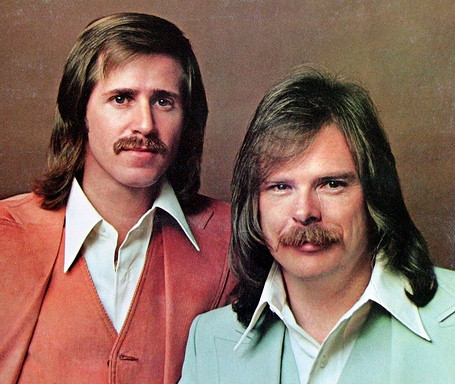
Dan Seals and John Edward Colley were an Acoustic duo from Texas who were most successful in the 1970s. Their song “It’s sad to belong” topped the Hot 100 for a record 5 weeks in 1978, and remains popular on radio airplay. Seals died in 2009, and Coley continues to perform today as a soloist.
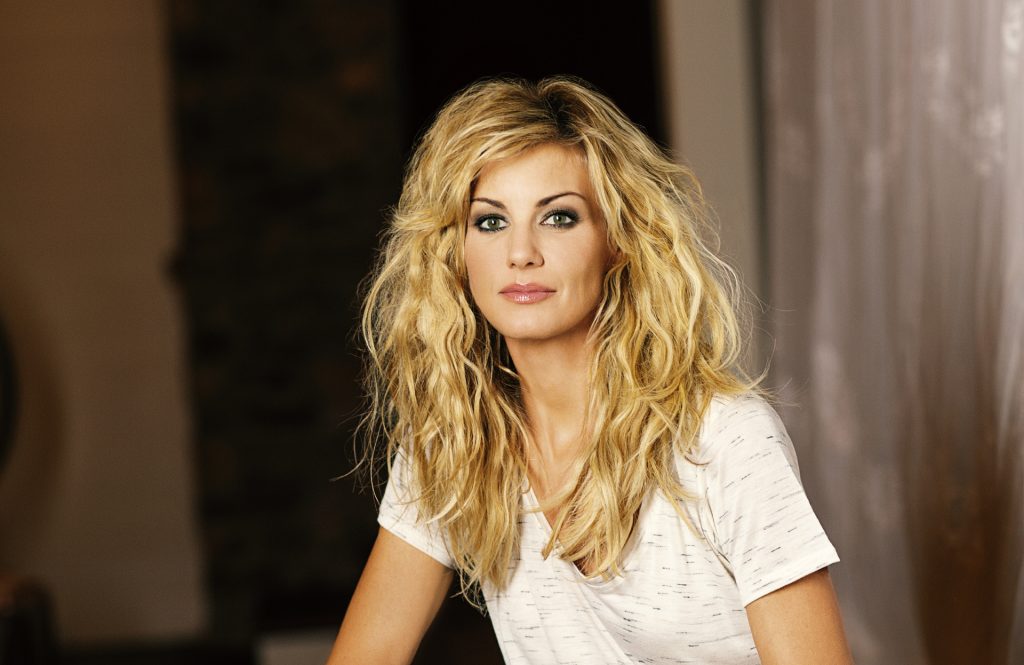
Faith Hill
Known to her fans as the “Queen of Nashville”, Faith Hill began her career in the early 1990s as a Dolly-Parton-esque cowgirl singer. But in March of 2003, she recorded the Power Ballad “There You’ll Be” in support of the Iraq War; and it straightaway went to Number 1 on the Hot 100, the first time in 20 years that a country singer had achieved this feat (the previous such instance being Kenny Rogers’s and Dolly Parton’s “Island in the stream” in 1983). She is married to fellow country singer Tim McGraw; the two frequently perform together.
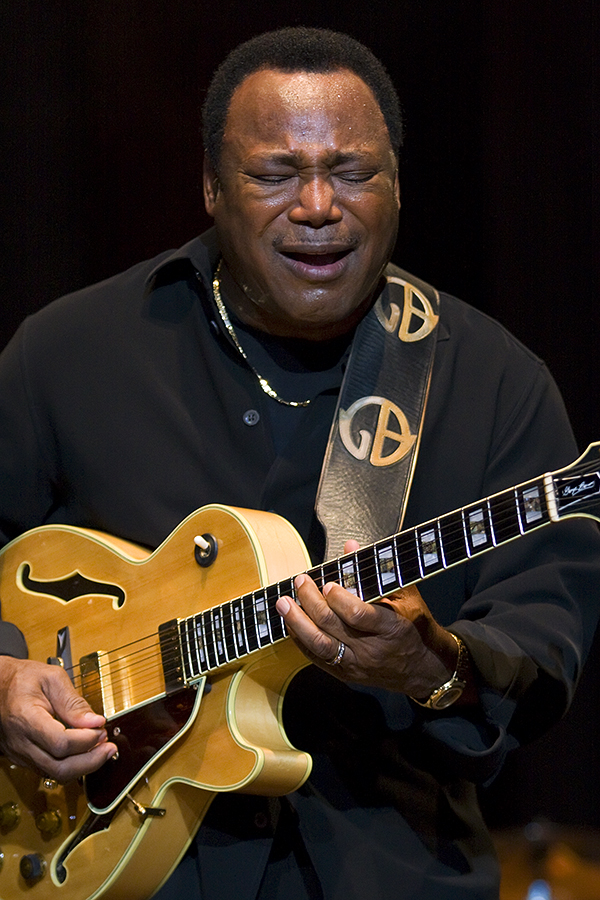
George Benson
Originally a jazz guitarist in the 1960s doing instrumentals, George Benson found himself a whole new audience after he went middle-of-the-road in 1977 when he recorded the Synth Ballad “The Greatest Love of All”, the theme song to the Mohammed Ali biopic released that same year. In 1985, Benson’s recording of the immortal Synth Ballad “Nothing’s gonna change my love for you” became a huge hit. He continues to perform today.
“Nothing’s gonna change my love for you” (1985)
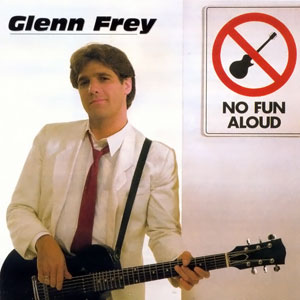
Glenn Frey
Formerly the lead vocalist of The Eagles, Glenn Frey took a new direction as a soloist in the 1980s, performing chiefly Synth Ballads. His debut solo album No Fun Aloud in 1982, spawned the Synth Ballad “The One You Love”, arguably Frey’s best-known solo number, which got to Number 15 on the Hot 100, and featured the saxophone solos of Kenny G. He went on to have more Synth Ballad hits in the 1980s, including his song “You belong to the city” from the soundtrack of the award-winning drama series Miami Vice. Frey’s middle-of-the-road success however, was short-lived; under millennial pressure, he reunited The Eagles in 1994. Frey passed away in 2016 from pneumonia; he was only 68.
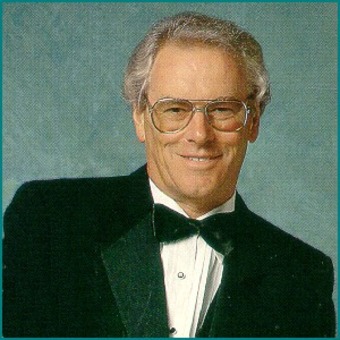
Hagood Hardy
Like his French counterpart Richard Clayderman, Canadian pianist/vibraphonist Hagood Hardy specialized in an Acoustic subgenre of middle-of-the-road instrumental music. Unlike Clayderman however, Hardy performed exclusively in an Acoustic style very similar to the Carpenters and Dan Fogelberg, and never did any Classical Crossover material. Hardy’s debut single “The Homecoming” was very reminiscent of early Clayderman, as was his theme tune to the Canadian movie Anne of Green Gables. His 1979 cover of Elton John’s “Daniel” was a different story, recalling to mind the Carpenters in their latter period. Hagood Hardy also served as a Liberal politician in the Canadian government, running for the 1995 election. He passed away in 1997 of lymphoma, only 59 years of age.
“Theme from Anne of Green Gables” (1985)
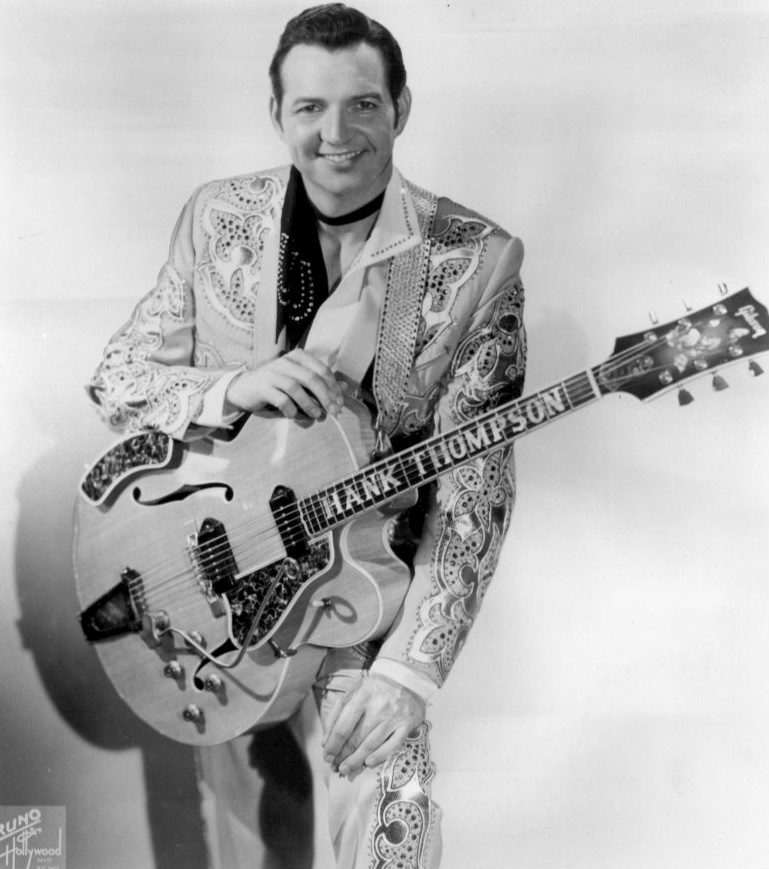
Hank Thompson
Folk singer-songwriter Henry William “Hank” Thompson can rightly boast about being the Founding Father of the Middle-Of-The-Road genre of music, as he holds the record for having made the earliest ever middle-of-the-road song on record, dating back to 1952. The song in question, “The Wild Side of Life”, was a very different arrangement to the instrumental soloing of each musician that was very common at the time, being a lot more toned-down and very hymn-like. “The Wild Side of Life” spent a record 15 weeks at Number 1 on the Billboard Hot 100 that year. It has since been covered by artistes from the most diverse of genres, and in 1999 it was inducted into the Library of Congress for being “culturally, historically, or aesthetically significant”. Unfortunately for Thompson, he failed to repeat the success of “The Wild Side of Life”, and he remains a one-hit wonder to date, in spite of having a career spanning more than 70 years. A heavy smoker his whole life long, Hank Thompson succumbed to lung cancer in November of 2007, aged 82.
“The Wild Side of Life” (1952)
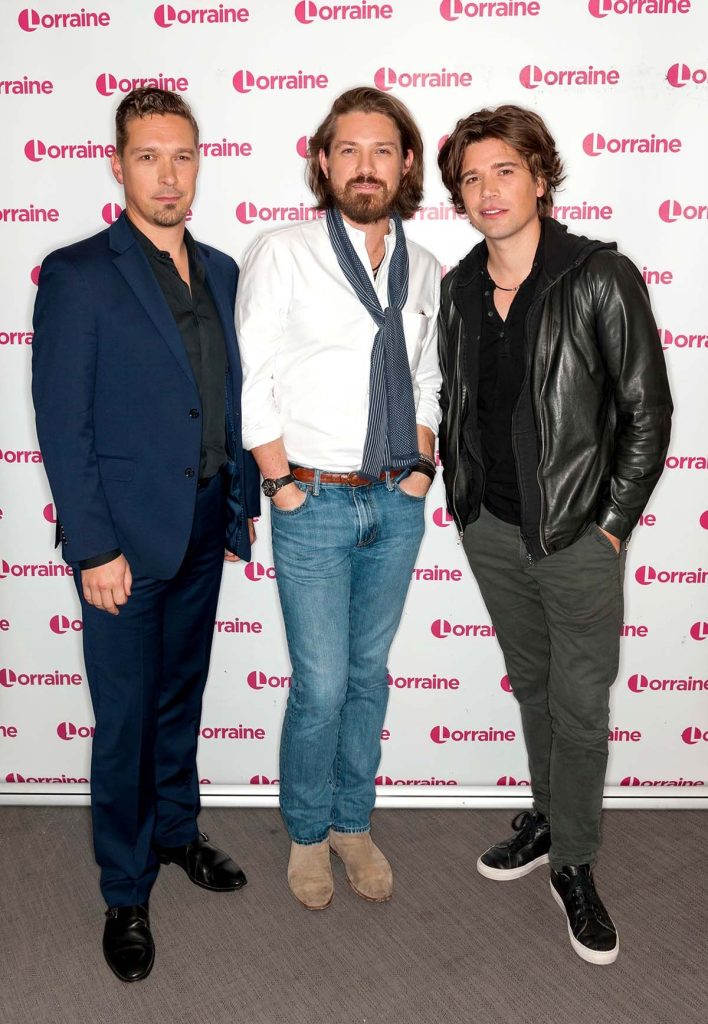
Hanson
Although they debuted on the scene in 1997 as pre-teen pop-rockers, Isaac, Taylor, and Zac Hanson subsequently toned their style down and proved that they could be as middle-of-the-road as anyone else. In fact, one of their earliest singles, “I will come to you” from 1997, was their first ever middle-of-the-road song, a Power Ballad co-written with award-winning songwriting couple Barry Mann and Cynthia Weil (of “You’ve lost that lovin feelin” fame). By the time Hanson made their comeback in 2007, drummer Zac Hanson had become the group’s main lead singer, and his song “Go” was a Power Ballad that brought to mind a young Peter Cetera. Shortly before COVID-19 broke out, Hanson released another middle-of-the-road Power Ballad, “Reading your mind”, again with Zac on lead vocals. Hanson still perform today.

Heart
Before the Spice Girls, there was Heart. Sisters Nancy and Ann Wilson were the living evidence that ladies could write, play, produce, and perform their own songs as well as men could. Originally a rock duo, Heart had several big rock hits in the 1970s, including the immortal “Stairway to Heaven”, a Number 1 on the Hot 100 which featured Nancy’s prominent lead guitars and Ann’s powerhouse dramatic soprano vocals, acoustic guitar, and flute solos. But by the time Heart made a comeback in the 1980s, they had decided to go middle-of-the-road, largely due to the stress Ann was facing which had led to her struggling with her weight. In 1980, Heart’s first middle-of-the-road success was their version of the Righteous Brothers’ “Unchained Melody”, which featured Ann belting out many stratospheric high notes in the coda, reaching easily to a high D natural. On their subsequent albums, many of their singles were middle-of-the-road, largely Power Ballads; “Alone” from 1987 topped the Hot 100 again, while “All I wanna do (is make love to you)” (a cover of a Dobie Grey original) from 1989 discussed the controversial topic of one-night stands. Heart continue to perform today.
“All I wanna do (is make love to you)” (1989)

James Levine
Dubbed “His Smilingness”, “America’s Most Huggable Maestro”, and “The Teddy Bear of Conductors”, James Levine was the long-time music director at the Metropolitan Opera. He was openly gay, an advocate for LGBTQIA+ rights, and had been involved for a long time with opera singer Luciano Pavarotti (himself also a successful Classical Crossover artiste), for whom he had recommended many major tenor roles in the opera. But “Jimmy”, as he was affectionately known, was also a Classical Crossover conductor in his own right; his most famous crossover success came in 2000, when he was asked to conduct the orchestra for Walt Disney’s new millennium production of Fantasia – only one of two conductors in history ever to conduct a Disney complete orchestral production, the other being the late Leopold Stokowski. The ensuing recording, dubbed Fantasia 2000, became one of Levine’s best-known non-operatic recordings to date, and was even released on CD and DVD by Decca Records. It sold especially well in Asia, where Levine has been popular ever since he came as a special guest to conduct a local school’s wind orchestra in the early 1980s. Levine passed away in 2021 at the age of 78, and is buried in a humble Jewish cemetery in his native Cincinnati.
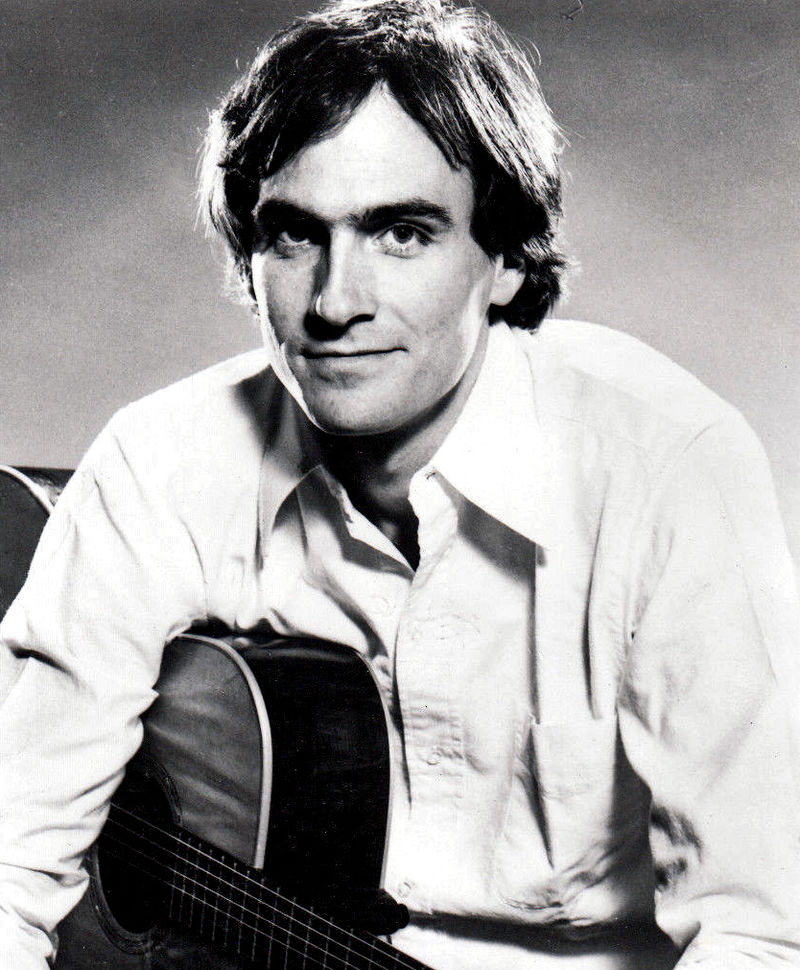
James Taylor
Although his name is unfamiliar to most, James Taylor is today regarded as one of the leading middle-of-the-road artistes. A performer of the Acoustic subgenre, his biggest successes were in the 1970s. His breakthrough song was “Fire and rain”; released in 1970, it details his experiences in psychiatric wards as well as the grief over the death of his friend Suzanne. The song inspired Carole King, who would later become Taylor’s good friend and frequent collaborator, to write the answer song “You’ve got a friend”, which Taylor himself also covered later on. Taylor’s other big hit was his version of Jose Feliciano’s “Rain”, released in 1976. He appeared on Sesame Street in 1982, where he performed a special song, “Your grouchy face”, as a duet with Oscar the Grouch. In 2010, he embarked on a world tour with Carole King; and in 2015 he released his most recent studio album Before This World. He still performs today.

The Jets
Elizabeth, Eddie, Kathi, and Moana Wolfgramm are The Jets from Minnesota. Dubbed the “Gods of the Synth Ballad”, they first became famous with their 1987 hit “You got it all”, recorded when lead singer Elizabeth was only 12 years of age. The following year, their Synth Ballads “Make it real” and “The same love” also were successful hits. The Jets split up in 1991 due to creative differences, but reunited in 2015 and continue to perform today.
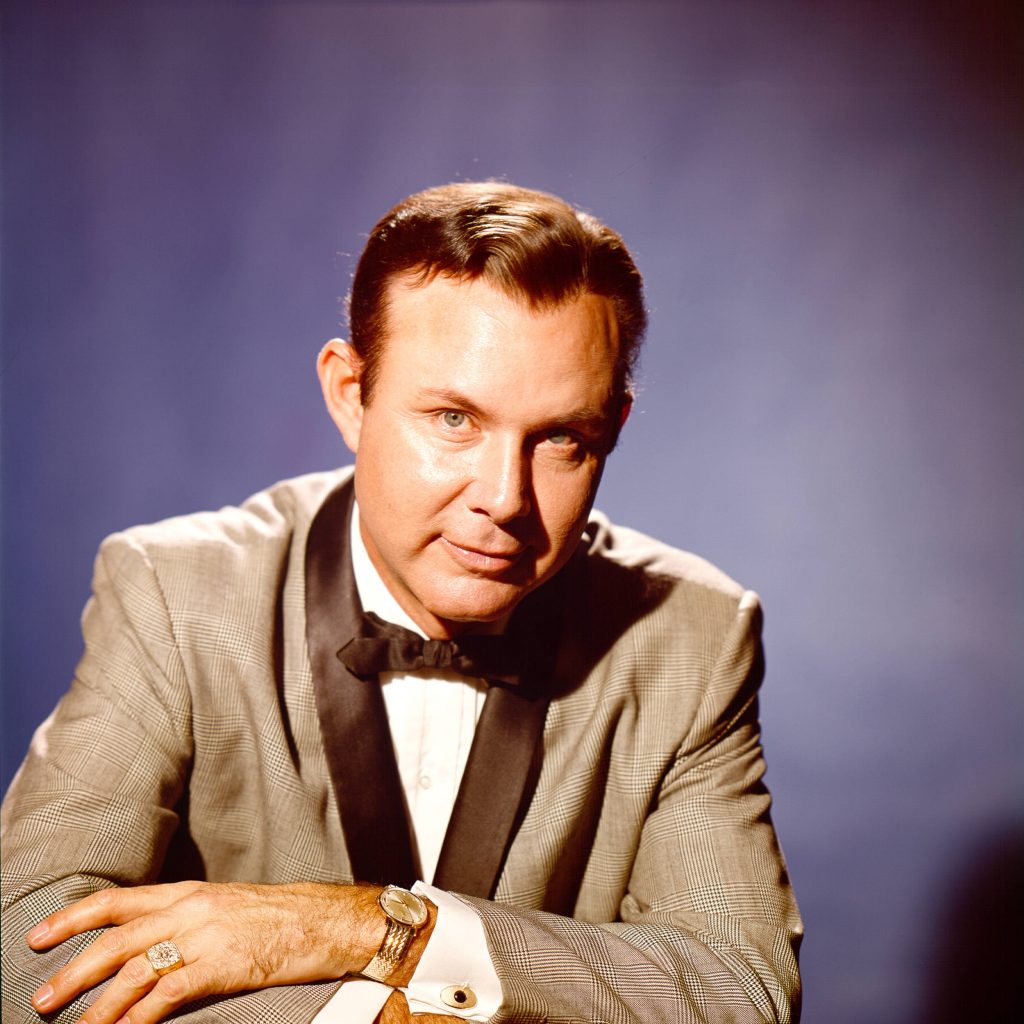
Jim Reeves
Although he began as a hardcore cowboy singer with songs like “Mexican Joe” in 1953, Jim Reeves eventually defined himself as a middle-of-the-road Acoustic practitioner and one of the genre’s pioneers. The turning point for him came in 1957, when he said, “One of these days, I’m gonna sing like I really wanna sing!” And this he did that same year with the release of his debut middle-of-the-road single, “Four Walls”. Two years later, Reeves cut what would become his signature song, “He’ll have to go”. The middle-of-the-road style envisioned in these songs, bordering in some areas on crooning, became Reeves’s trademark. One of Reeves’s last recordings was “Welcome to my world”, released in 1962, which later became famous as the commercial jingle for furniture superstore Courts. Reeves died tragically in a plane crash in 1964, aged only 41. Many of his records were released posthumously, including the Xmas classic “Snowflake”, released four years after his death.

Johnny Tillotson
When it comes to the British Invasion, many know Cliff Richard, many know Englebert Humperdinck, many know the Rolling Stones, almost everybody knows the Beatles – but almost nobody knows Johnny Tillotson. Born in London in 1938, Sir Johnny was one of the pioneers of the middle-of-the-road genre, having released his first single in 1958, roughly around the same time as the debuts of fellow middle-of-the-road pioneers Neil Sedaka and Paul Anka. Like most middle-of-the-road pioneers, Tillotson specialized chiefly in the Acoustic subgenre. He enjoyed his biggest successes in the 1960s, during the peak of the British Invasion, even though he did not achieve as much success locally as his contemporaries The Beatles and Cliff Richard, largely due to his toned-down disposition. He did, however, receive recognition in Asia, particularly in the 1980s when he began several Asian tours. He has not released any new material since 1977 or toured since 1989, and has yet to reappear on the music scene.
“Send me the pillow that you dream on” (1962)
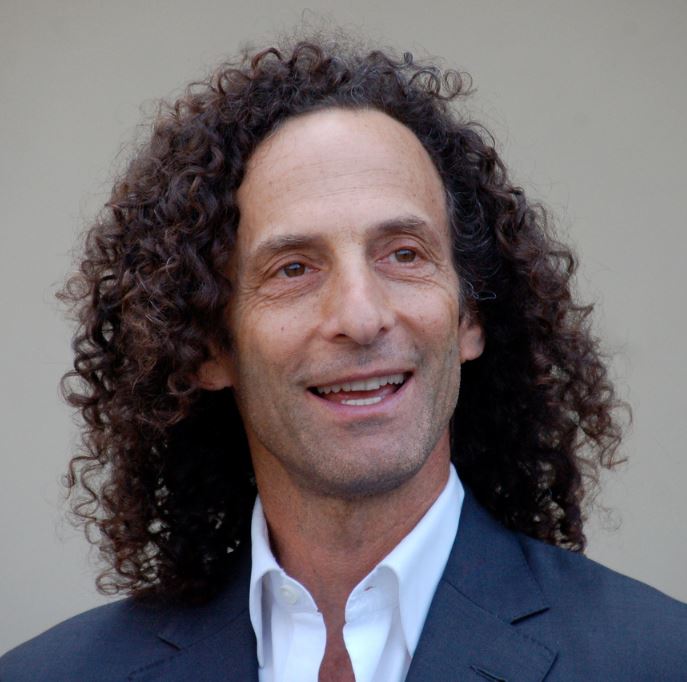
Kenny G
The saxophonist whose hairdo was as recognizable as his soulish playing style, was most famous for his work as sideman of Glenn Frey (“The one you love”, 1982) and George Michael (“Careless whisper”, 1985), on which his solos can clearly be heard. But Kenny G was also an artiste in his own right, and his 1992 album Breathless was a major success in proving his unique style, using a saxophone solo over a Synth Ballad arrangement. He continues to perform today.
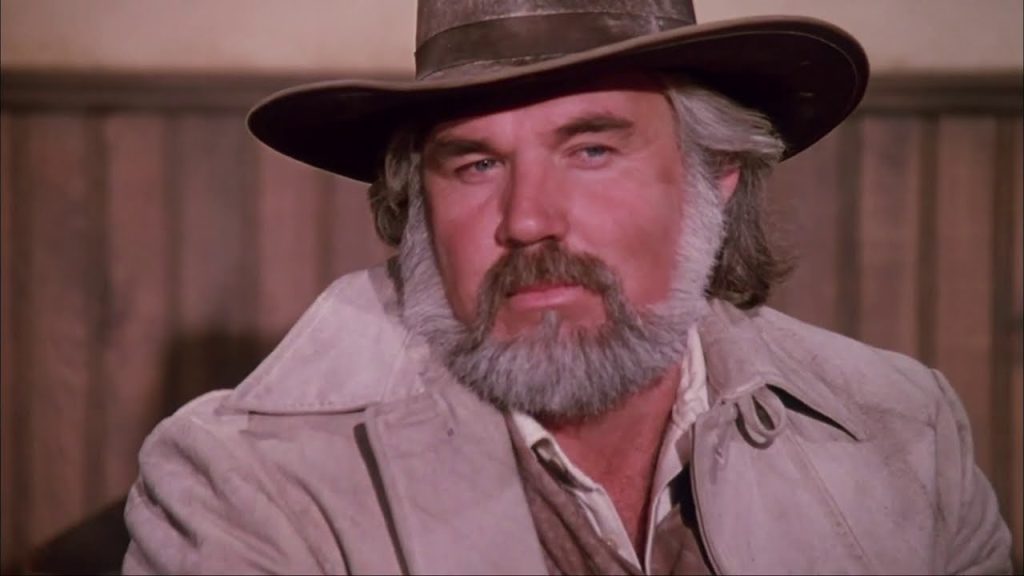
Kenny Rogers
The Gambler himself was one of the most formidable figures of country music in the 1970s, being one of the few who could sing, write songs, act, and host simultaneously – a feat he accomplished in 1979, starring as the titular Gambler in the famous drama series, hosting The Tonight Show, and of course writing and recording many of his most memorable “cowboy-themed” songs such as “Sweet Music Man” or “Love or Something Like It”. But it was in the 1980s when he went middle-of-the-road, largely in the form of duets with other artistes, that Kenny Rogers actually made himself globally known. One of his first duets was the Acoustic “Don’t fall in love with a dreamer” with Kim Carnes (of “Bette Davis Eyes” fame) in 1980. He would go on to duet with other big names like Sheena Easton (the Power Ballad “We’ve Got Tonite”), Dolly Parton (their Power Ballad duet “Island in the stream”, written by the Bee Gees, was a Number 1 smash on the Hot 100 at Xmas 1983; it is popular in the UK today due to it being the theme song to the TV series Gavin & Stacey), and Anne Murray (the Power Ballad “If I ever fall in love again”). In the 1990s, Kenny’s solo singles also showed that he had come a long way since his Gambler days, including his Acoustic chart-topping 1993 cover of Dolly Parton’s original “I will always love you”. Kenny Rogers passed away peacefully in 2020 from complications of COVID-19 at the age of 82.
“Don’t fall in love with a dreamer” (1980; with Kim Carnes)
“We’ve got tonite” (1982; with Sheena Easton)
“Island in the stream” (1983; with Dolly Parton)
“If I ever fall in love again” (1989; with Anne Murray)
“I will always love you” (1993)
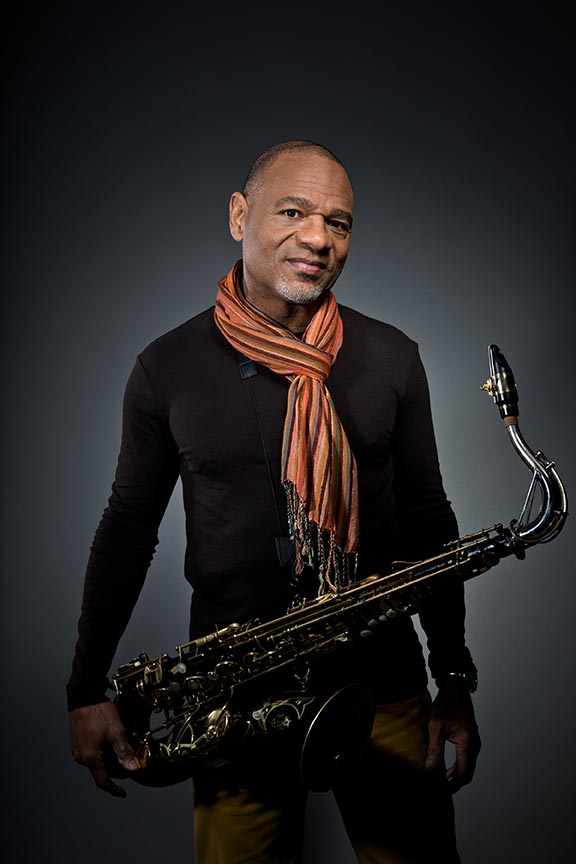
Kirk Whalum
Another saxophonist, most famous for his work with Whitney Houston. But like Kenny G, Kirk was an artiste in his own right too, with his solo work – nearly all of them Synth Ballads – sounding very much like instrumental versions of typical Whitney Houston numbers. One of his songs, “Song for Evan” from 2001, recalls to mind Lionel Richie’s “Penny Lover” from 1983. Kirk continues to perform today.

Lionel Richie
Originally known for his disco-flavored anthems such as “All night long”, Lionel Richie was no less well-known for his middle-of-the-road Synth Ballads. Perhaps the most well-known such examples come off of his 1983 album Can’t Slow Down; “Hello”, his signature song, is arguably the best-known of these, and so is “The Only One”, co-written with Per Gessle of Roxette; and “Penny Lover”, a song with an interesting hook which Richie himself has said he still cannot define (“‘Penny Lover’ sounds cool, but what is a ‘Penny Lover’? Penny couldn’t be a girl’s name in a soul song, because there aren’t too many black girls named Penny. ‘Penny For Your Love’ is kind of corny. What do we do?… Finally, I just wrote around the hook ‘Penny Lover’.” – Lionel Richie, in the liner notes to Can’t Slow Down). He has also done several Acoustic songs, notably “Lady”, which got to Number 1 on the Hot 100 in 1980. In 1985, Lionel Richie’s Power Ballad “Say you say me” was featured on the soundtrack of the movie White Knights. He continues to perform today.
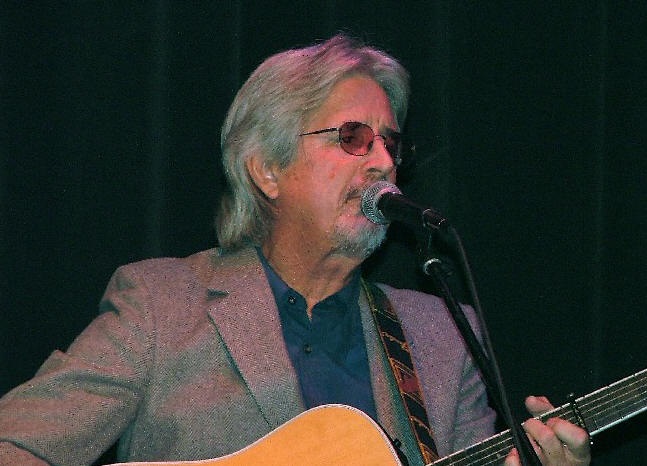
Lobo
Born Roland Kent Lavoie, Lobo came from Florida and, like Kenny Rogers, also began his career as a country singer. But in the 1970s he signed on to a label where he performed a unique countryfied Acoustic style of middle-of-the-road music, beginning with the folksy anthem “Me and you and a dog named Boo” in 1971, a song about living a wandering life. He enjoyed his biggest successes throughout the 1970s, after which he parted ways with his label and relocated to Nashville where he returned to his country music roots. Lobo’s newest single, “Life doesn’t get any sweeter than this”, is just released.
“Me and you and a dog named Boo” (1971)
“Life doesn’t get any sweeter than this” (2024)
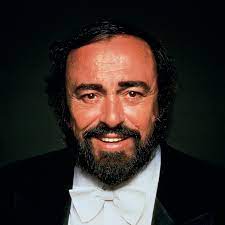
Luciano Pavarotti
The King of Opera was also a middle-of-the-road artiste, following his series of concerts with Placido Domingo and Jose Carreras (as The Three Tenors) and also his “crossover concerts” series in Modena with many modern artistes; these paved the way for the modern Classical Crossover subgenre as we know it today. Of his Classical Crossover successes, Luciano’s duet with Bryan Adams in 1994, “All For Love”, taken from the Three Musketeers soundtrack, is perhaps the best-known. An advocate for LGBTQIA+ rights, Luciano’s long-standing affair with conductor/accompanist James Levine is well-known in the opera world. Luciano passed away in 2007 at the age of 72 from a heart attack.
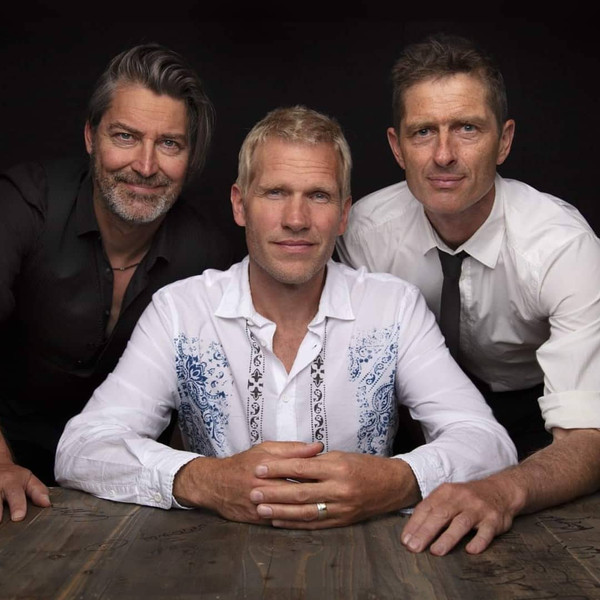
Mikkel Lentz, Jascha Richter, and Kaare Wanscher are Michael Learns To Rock from Aarhus, Denmark. They originally formed in 1988 for Eurovision, and took their band name in a hurry; it was a play on guitarist Mikkel Lentz’s name. An all-rounded middle-of-the-road band, MLTR have had hits in at least three of the four known subgenres of middle-of-the-road music; most of their songs are written by lead singer / keyboardist Jascha Richter. Their first big hit was the Synth Ballad “The Actor”, released in 1991; they subsequently went on to have a string of hits in the 1990s, including “Sleeping Child” (1995, Acoustic), “25 minutes” (1995, Power Ballad), “That’s why” (1996, Power Ballad), “Paint My Love” (1997, Acoustic). Their success in the middle-of-the-road scene caused many listeners to hail them as the successors to Air Supply. After a short hiatus in 1998, they made a comeback in 2000 with the Synth Ballad “You took my heart away”. The year after, they recorded the Power Ballad “The Ghost of You”, their tribute to the 9/11 attacks. And in 2009, they delivered their biggest hit of the new millennium, the Power Ballad “Take me to your heart”. MLTR have recently released their newest album STILL in 2018, and they continue to perform today, having played their first US concert in 2019.
“You took my heart away” (2000)
“Take me to your heart” (2009)
“If you leave my world” (2009)
“Hiding away from life” (2018)
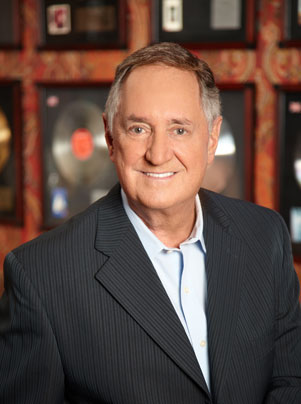
Neil Sedaka
One of the early pioneers of the middle-of-the-road genre, an Acoustic specialist. Sedaka possessed an almost feminine-sounding male contralto voice, and was capable of performing both upbeat as well as slower Acoustic numbers, all of which he wrote himself. One of his first breakthrough songs was “Oh! Carole”, an upbeat tribute to middle-of-the-road singer-songwriter Carole King, whom he had dated in high school. Subsequent songs showed Sedaka’s versatility, including his 1960 smash “You mean everything to me” (which recalls to mind Paul Anka’s “You are my destiny” from three years ago; Anka also received a songwriting credit as such), and 1975’s “Laughter in the Rain”, which shows influence from the Carpenters. Sedaka recently released his newest album, Waking Up Is Hard To Do, in 2014; and he still performs today.
“You mean everything to me” (1960)
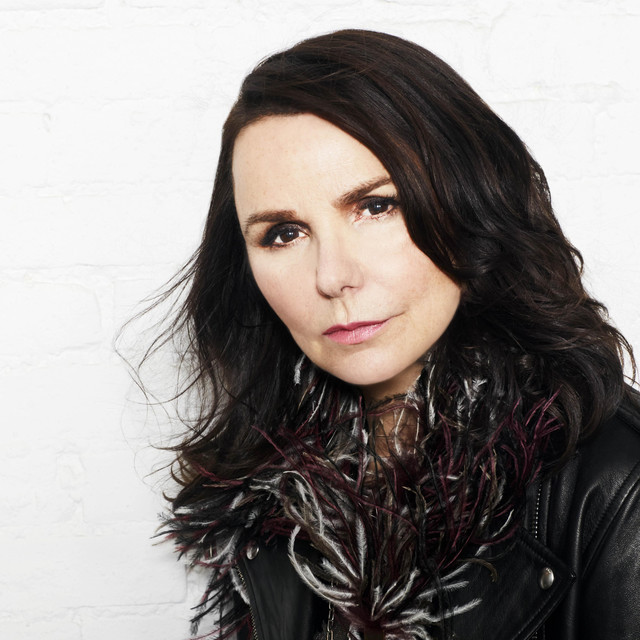
Patty Smyth
She began her career in the 1970s as the lead singer of rock band Scandal, but found her greatest ever success when she went middle-of-the-road in 1992 with but one song – and what a song it was, a duet with Don Henley of The Eagles. “Sometimes love just ain’t enough”, off Patty Smyth’s album of the same name, is a Power Ballad which got to Number 2 on the Hot 100 and also became certified Gold for sales of more than 500,000. The success of “Sometimes” enabled Smyth to retire early, after which she married tennis star John McEnroe; and she did not release her next album until 2015. She continues to perform today on an ad-hoc basis.
“Sometimes love just ain’t enough” (1992)
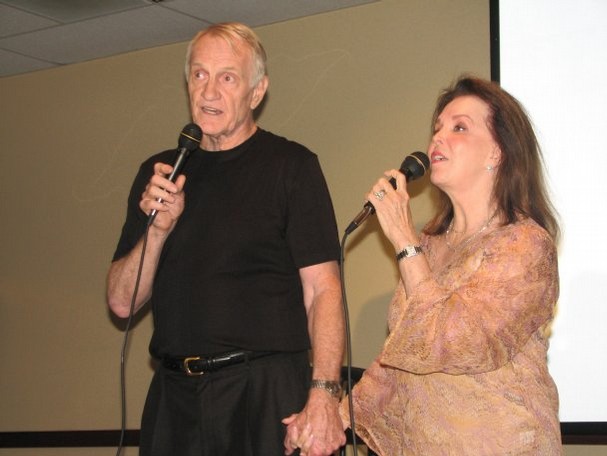
Paul & Paula
Ray Hildebrand and Jill Jackson Landon came from Texas and were both still in college when they took part in a songwriting contest to benefit the American Cancer Society. The Acoustic organ-based song they wrote for this contest, “Hey hey Paula”, became so successful that they were encouraged to make a record. Which they did in 1963 after they were finally signed on. But the manager first rebranded Ray and Jill as Paul & Paula, claiming that two people named Ray and Jill singing about “Hey hey Paula” and “Hey hey Paul” doesn’t quite make sense. Although Ray and Jill were not for this idea, they grudgingly decided to play along, and the rest was history; “Hey hey Paula” went straight to Number 1 on the Hot 100. Their follow-up single was “Young Lovers”, released also in 1963. Shortly afterward, Ray decided that the life wasn’t for him, and he left Jill in the lurch on a Dick Clark Caravan of Stars tour in 1965. Jill later moved to California and became a private practicing lawyer, while Ray relocated to Kansas and worked behind the scenes as a record producer. Paul & Paula reunited again in 2012 at their alma mater, where they sang their signature song and talked about their early days. Ray Hildebrand passed away in August of 2023 at the age of 83.
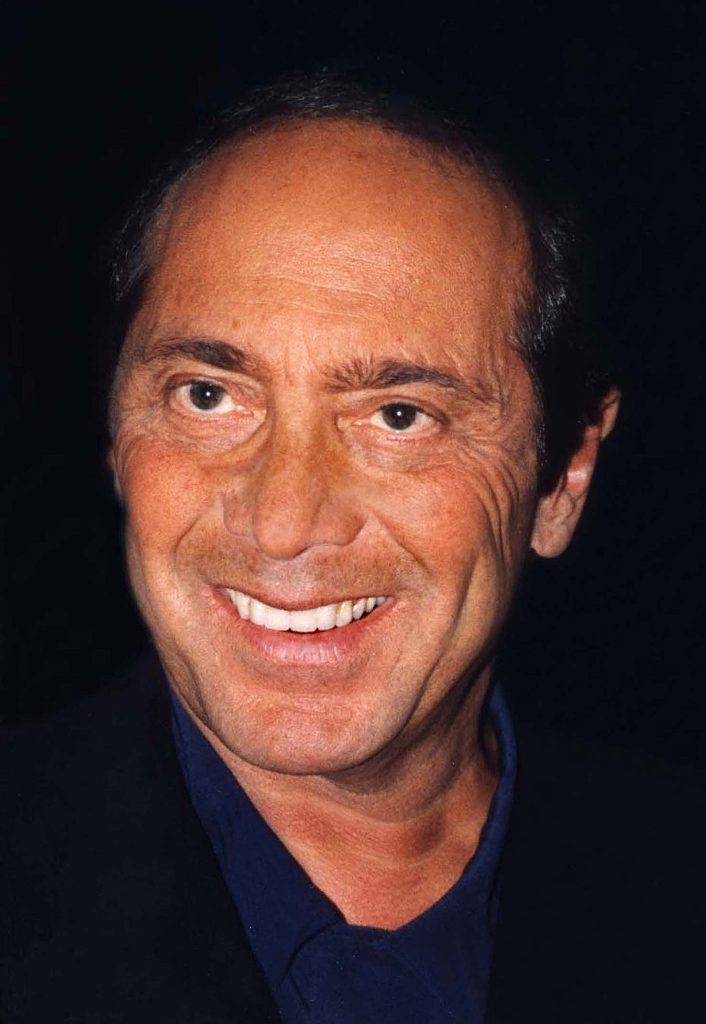
Paul Anka
Hailing from Canada, Paul Anka is also one of the pioneers of the middle-of-the-road music genre, specializing in the Acoustic subgenre. One of his first big hits was the song “You are my destiny”, released in 1957; which in turn influenced Neil Sedaka to write “You mean everything to me” three years later. In the 1970s, Anka began a series of Acoustic collaborations with Motown songstress Odia Coates (best known for her 1975 hit “Showdown”); and in the 1980s he became known for his advertising jingles for Japanese film company Kodak. He still performs today.
“Put your head on my shoulder” (1959)
“I believe there’s nothing stronger than our love” (1975, with Odia Coates)
“I don’t like to sleep alone” (1975, with Odia Coates)
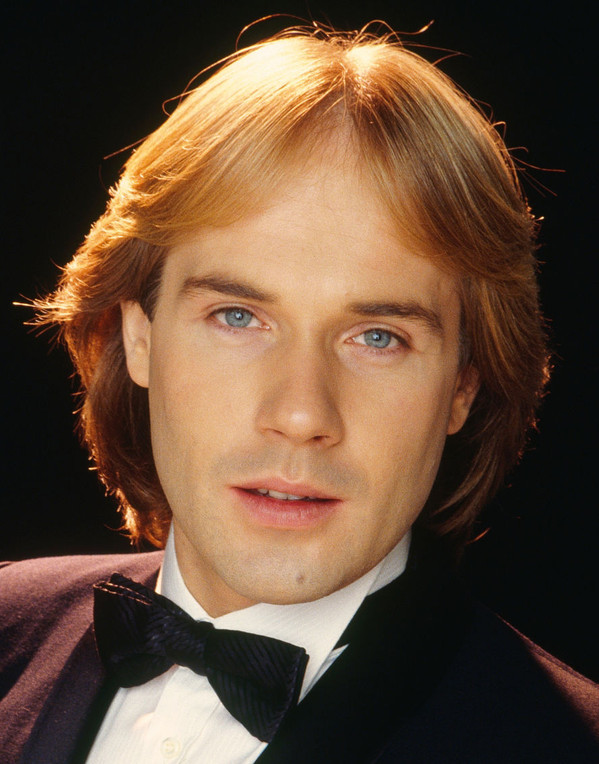
Richard Clayderman
French pianist Richard Clayderman is perhaps most well-known today for his Acoustic piano instrumental originals and also his Classical Crossovers – he is in fact the first and original true Classical Crossover artiste, having made some of his first Classical Crossover recordings in the late 1970s, mostly classical piano pieces by such composers as Beethoven, Chopin, Liszt, etc., set to Acoustic arrangements. Clayderman enjoyed his biggest successes in the early 1980s. He still continues to perform today, having recently had a concert in London in 2024.
“Ping pong sous les arbres” (1980)
“Concerto pour une jeune fille nommee” (1981)
“Le voyage dans la nuit” (1981)
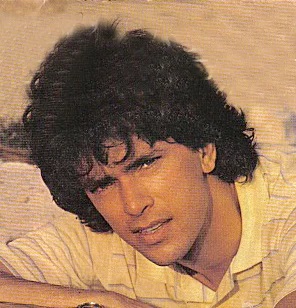
Richard Sanderson
Scottish-French-Jewish singer Richard Sanderson began his career as an accompanist, mostly playing piano in hotels. His first few albums were recorded in French, including his debut single “Un Vent de Folie”. But in 1979 he met the film producer Vladimir Cosma, who asked him to perform the theme song to the movie La Boum which starred Sophie Marceau. The theme song, the Acoustic “Reality”, became a huge hit in Europe, and is considered Sanderson’s signature song. A linguist, Sanderson has recorded in French, German, English, and Hebrew. He has also soundtracked four movies, all of them French. His most recent album, How To Be Elegant, was released in 2018; he still performs today.

Rick Price
Hailing from Australia, Rick Price began his career as a Power Balladeer, utilizing a voice and a style that caused many to compare him to fellow Power-Balladeers Bryan Adams and Richard Marx. His first album Heaven Knows in 1992 was the epitome of this outlook, with its stunning title track – a big hit in his native Australia – as well as his cover of The Left Banke’s “Walk Away Renee”. By the time of his next album Tamborine Mountain in 1995, Price had taken a more countryfied turn with his music, and his newest material – as recently as 2016 – have shown country influences. Based in Nashville now, he continues to perform today.
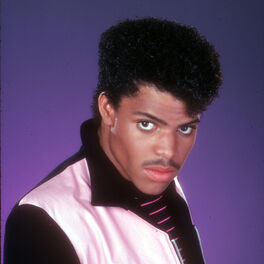
Rockwell
Best known as one of Michael Jackson’s backing singers, Kennedy William “Rockwell” Gordy is also the son of Motown founder Berry Gordy. His father initially did not approve of him becoming a singer in his own right, not allowing him any more than to be a chorus vocalist; but young Kennedy William Gordy went and secured a recording deal without his father’s knowledge, taking the stage name Rockwell, a tribute to painter Norman Rockwell whose work he admired secretly. The only middle-of-the-road success Rockwell had to date was the power ballad “Knife”, released on his debut album in 1984. Rockwell failed to repeat the success and remains a one-hit wonder to date; he left music in the 1990s to focus on charity work.
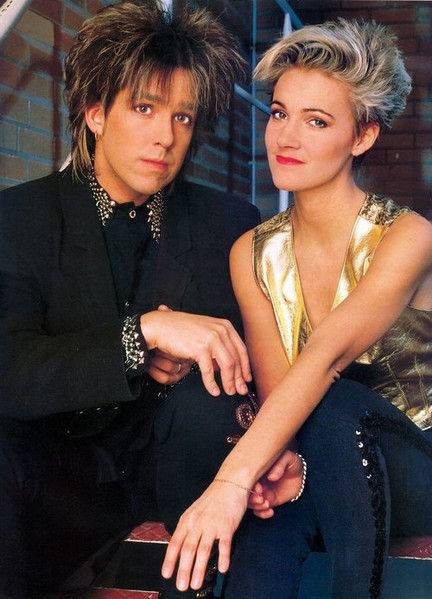
Roxette / PG Roxette
Hailing from Sweden, Per Gessle and Marie Fredriksson got together as Roxette in the late 1980s, and had their first big hit in 1987 with “It must have been love”, the theme song to the Julia Roberts movie Pretty Woman. As Power Ballad specialists, the duo would have more hits in the late 1980s and early 1990s, including “Listen to your heart”, “Spending my time”, “Perfect day”, “The sweet hello, the sad goodbye”; and “You don’t understand me”. In 1996, Per Gessle relocated to Southeast Asia, where he did a short stint as a record producer in Form Records where he produced albums for many regional Asian artistes, mostly from Taiwan and Hong Kong, and also composed the music for the theme songs to many Southeast Asian drama serials. In 1999, Gessle and Fredriksson reunited at Form Music Publications in Asia, where they recorded their follow-up album Have A Nice Day which included the big hit “To love you more”, before they returned to Sweden after Gessle’s contract in Asia expired and he decided not to renew it. Their final album as Roxette would be the year after when they recorded Room Service, before Fredriksson fell in the bath and developed a malignant tumor that would later ultimately claim her life in December of 2019. Following Fredriksson’s death, Gessle formed a new incarnation of Roxette called PG Roxette in 2021, which comprised him along with female vocalists Helena Josefsson and Dea Norberg; PG Roxette released their first single, the upbeat Synth Ballad “The Loneliest Girl in the World”, in 2021, with Gessle on lead vocals. In 2023, Lena Philipsson replaced Josefsson. PG Roxette will perform their first concert tour in 2025, starting in South Africa and Australia.
“It must have been love” (1987)
“The sweet hello, the sad goodbye” (1991)
“You don’t understand me” (1995)
“The loneliest girl in the world” (2021)
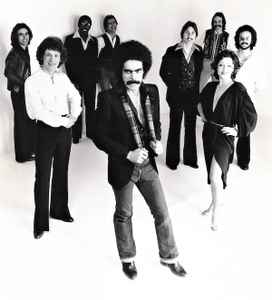
Santa Esmeralda
Originally a disco group formed at the height of the 1970s, Santa Esmeralda went middle-of-the-road towards the end of their career in 1982, after their Cape-Verdean-born lead singer Leroy Gomez composed the immortal Acoustic standard, “You’re my everything”, which showcases his plaintive voice that brings to mind a young Art Garfunkel. The song never charted but became one of the most requested songs on radio airplay, and it is regarded as the song that made Santa Esmeralda famous. After Santa Esmeralda disbanded, Leroy Gomez went on to become a soloist; he still performs today, billed as “Santa Esmeralda (starring Leroy Gomez)”.
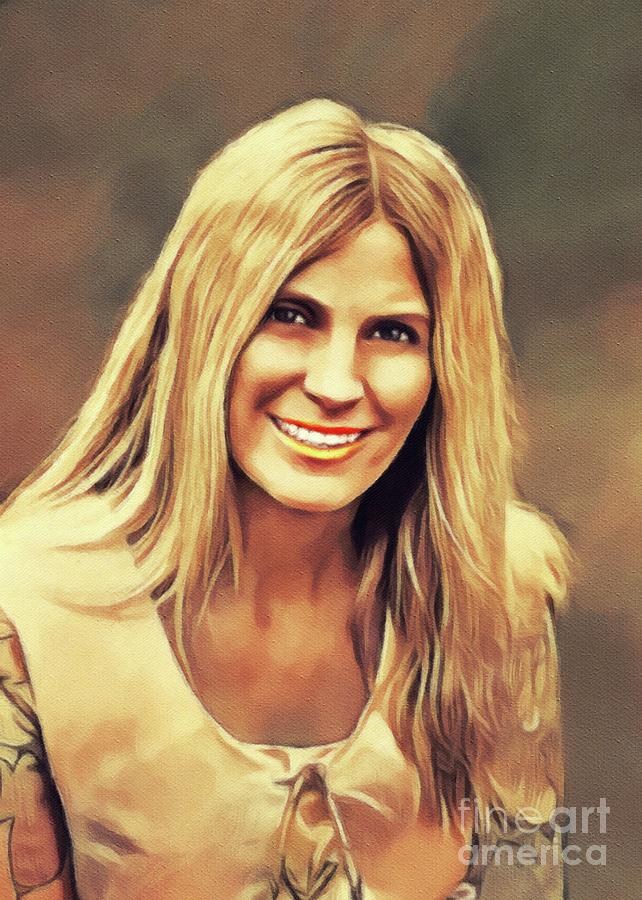
Skeeter Davis
Originally born Mary Frances Penick, she was well known for her ability to sing harmony with herself. A pioneer of the middle-of-the-road genre, Skeeter performed chiefly in the Acoustic subgenre; her first big hit was “Lost to a Geisha Girl” in 1958, an answer song to Hank Locklin’s “Geisha Girl”. In 1960, she became one of the first artistes to transcend genres when her song “I can’t help you I’m falling too” – another answer song to a Hank Locklin song, “Please help me I’m falling (in love with you)” – got to Number 1 on the Hot 100 and resulted in her being invited by Dick Clark to perform on Bandstand. Both answer songs featured lyrics written by Davis herself. Davis’s biggest all-time success of all is arguably her 1962 smash hit, “The end of the world”, which topped the Hot 100 and Country charts, and even had a surprise Top 5 appearance on the R&B charts also. “The end of the world” is considered Davis’s signature song, and has most recently been featured in the video game, Fallout 4. Davis became especially well-known in Asia, where she still retains a following, and toured Asia in the 1970s and 1990s. Diagnosed with Breast Cancer as early as 1988, she became incapacitated in 2001 and finally succumbed in 2004, aged only 72.
“Lost to a Geisha Girl” (1958)
“I can’t help you I’m falling too” (1960)
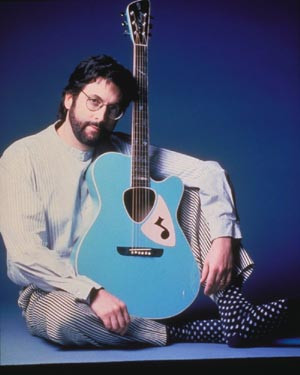
Stephen Bishop
Originally a protege of Art Garfunkel, Stephen Bishop today is best known for his Acoustic songs, most of them theme songs to 1980s movies. His signature song and breakthrough hit “It might be you” came from the 1982 movie Tootsie; “Separate Lives” from the 1985 movie White Knights; and “Something new in my life” from the 1988 movie Micki & Maude. He continues to perform today; although he canceled tours for 2024 due to COVID concerns, he plans to return to touring in 2025.
“Something new in my life” (1988)
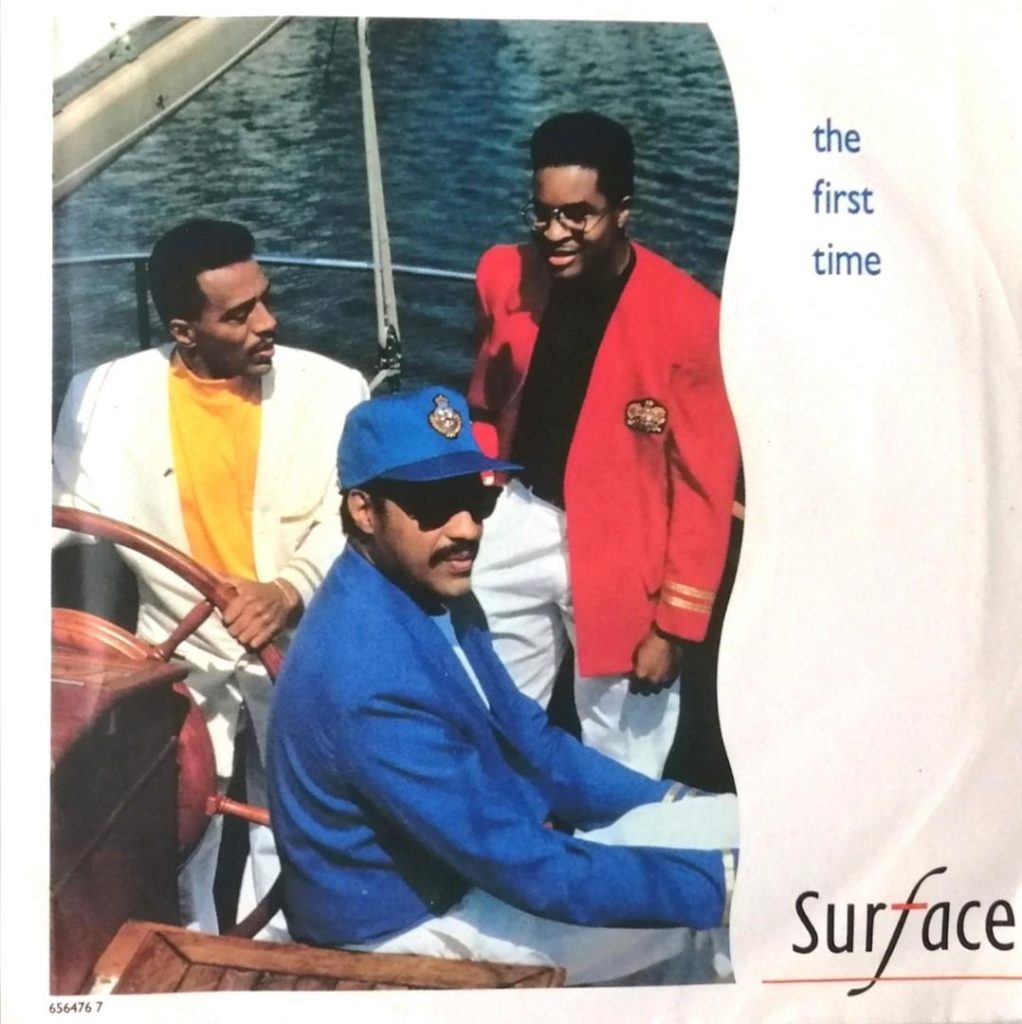
Surface originally began their careers in the early 1980s as a soul band and a foursome, comprising keyboardist Dave Townsend, keyboardist Dave Conley, bassist Bernard Jackson, and lead singer Karen Copeland. Their first two singles were released in 1983, after which Copeland left the band. Jackson tried to search for a new lady to sing lead, but in vain; so he became the lead singer instead, and under his leadership Surface took a more middle-of-the-road direction, specializing in Synth Ballads reminiscent of Earth Wind & Fire. Jackson’s composition “Shower me with your love”, released in 1989, topped the Hot Black Singles charts and got to Number 5 on the Hot 100, and became synonymous with Surface. Surface broke up in 1994, but reunited in 1998 to record a new studio album, hoping for a comeback concert scheduled for 2005. However, merely weeks before said concert was to take place, Townsend was found dead in his hotel room. Today, Bernard Jackson performs as a soloist, billed as “Surface (feat. Bernard Jackson)”; he most recently was seen singing “Shower me with your love” at a wedding in his native Connecticut in 2011.
“Shower me with your love” (1989)
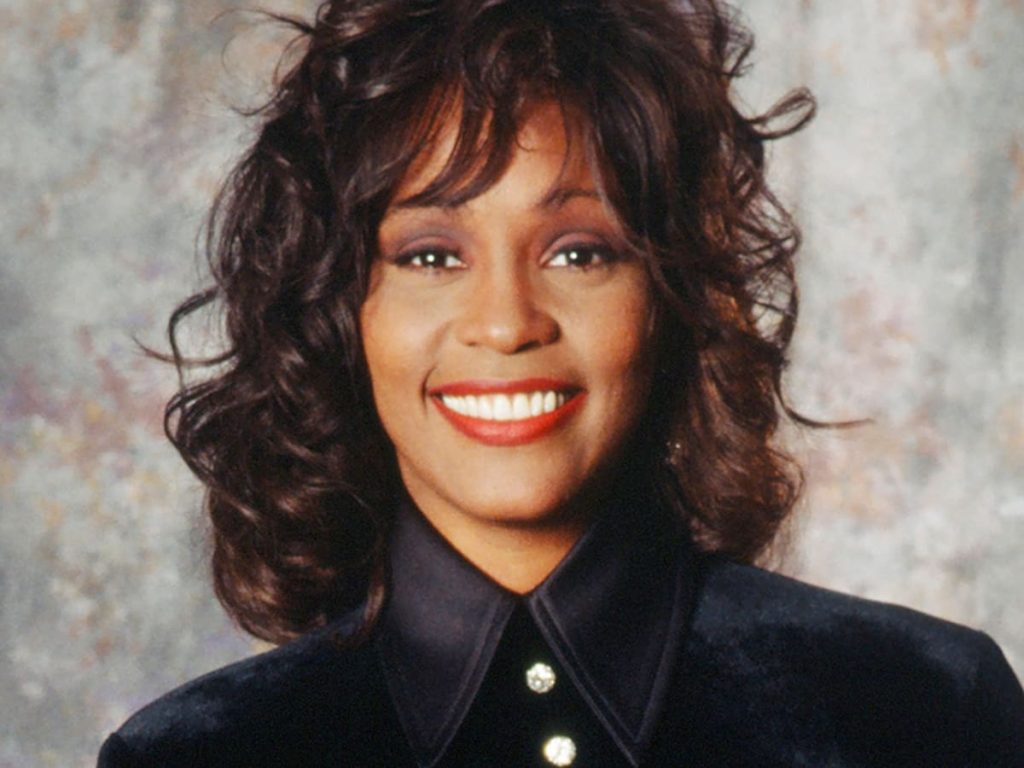
Whitney Houston
The oldest and most well-known of the “Vocal Trinity”. She began her career largely as an R&B specialist, but achieved her biggest successes with her middle-of-the-road Synth Ballads in the 1980s, beginning with her 1984 cover of George Benson’s “Greatest love of all” (in turn later also covered by Celine Dion). In 1987, her “Didn’t we almost have it all” was a chartbuster, as was “One moment in time” the year after, taken from the soundtrack of The Preacher’s Wife in which she also played the title role. By the 1990s however, Whitney’s success began dwindling, and she returned to her R&B roots in 1998 after recording “When you believe” with her fellow Vocal Trinity alumna Mariah Carey. Whitney passed away tragically in 2012 at the age of 49, purportedly from a successful suicide attempt by drowning herself in the bath.
“Didn’t we almost have it all” (1987)